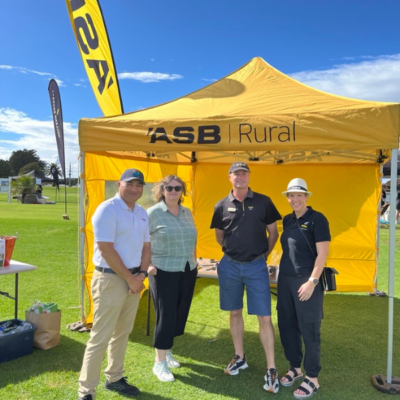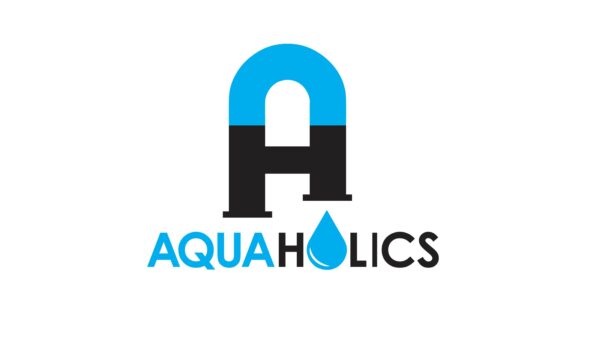On 7 April 2022, Immigration New Zealand released the policy for the Employer Accreditation step of the upcoming Accredited Employer Work Visa process.
This article from Lauren Qiu, Principal at Stay Legal, will address key points of interest relating to this policy update.
Median Wage Will Increase To $27.76 Per Hour
Immigration New Zealand has announced that the median wage will increase from $27.00 per hour to $27.76 per hour on 4 July 2022. This means that employers who are intending to apply for a Job Check at or above the median wage will need to state at least the $27.76 per hour figure when advertising, unless a sector agreement/wage exemption applies.
A New Zealand Business Number (NZBN) Is Required
A New Zealand Business Number is required. This is usually issued by the Companies Office when a Limited Liability Company is registered. Employers who are operating as a sole trader, a trust, or a partnership should apply for a New Zealand Business Number in a timely manner. Employers can apply for a New Zealand Business Number here. The exception to this requirement is if the employer is a foreign diplomat or consular.
It should also be noted that where the employer is a sole trader, trustees in a trust, or partners in a partnership, the sole trader or at least one of the trustees or partners must have New Zealand as their primary place of established residence.
Employer Costs Must Remain With The Employer
Employer costs (for example: advertising costs, recruitment costs, Employer Accreditation application fees, Job Check application fees, health and safety equipment required for job safety, branded uniforms, compulsory training/induction, trade testing, or equipment costs where the employer retains ownership of the equipment) must remain with the employer.
Employers Need To Be A Viable & Genuinely Operating Business/Organisation
The definition of ‘viable and ongoing’ includes being able to meet financial obligations such as paying wages and/or salaries, paying for all other operating costs, and purchasing inventory (if relevant). Employers must:
- Have not made a loss (before depreciation and tax) over the last 24 months; or
- Have a positive cash flow for each of the last 6 months; or
- Have sufficient capital and/or external investment (for example funding from a founder, parent company, or trust) to ensure the employer’s business remains viable and ongoing; or
- Have a credible, minimum 2-year plan (for example by having contracts for work) to ensure the employer’s business remains viable and ongoing.
In practice, some employers who are now struggling due to Covid-19 could face issues.
Employers who have been in business for less than 12 months will likely need to provide financial evidence upfront at the time of application and make their case.
Compulsory Settlement Support Activities
Employers will need to provide settlement support to migrant workers within 1 month of them beginning their employment as an Accredited Employer Work Visa holder. Employers will need to also keep a record of these migrant workers confirming that they have received this information. Settlement support includes information about:
- Accommodation options;
- Transportation options (including driving and driver licence information, and public transportation options);
- The cost of living;
- How to access healthcare services;
- Citizens Advice Bureau services;
- Relevant community groups;
- How to obtain an IRD number from Inland Revenue;
- Any industry training and qualification information and options; and
- Specific job or industry hazards.
Migrant workers will need to complete online employee modules during paid work hours. A record of this must also be kept. This should include emails between the employer and the migrant workers.
Similarly, anyone who makes recruitment decisions within the employer’s organisation (for example hiring managers, human resource managers, sole traders, and partners), will also need to complete online employer modules. This will need to be done once within each accreditation period. A record must also be kept of this.
Additional Requirements For Franchisees & Employers Using Triangular Employment Arrangements
There are additional requirements for franchisees and employers using triangular employment arrangements. The franchisee definition and requirements are comparatively less onerous when compared to employers using triangular employment arrangements.
The definition of ‘triangular employment arrangements’ is relatively robust, therefore some less obvious employers may fall within the definition. The non-exhaustive list that Immigration New Zealand has provided includes:
- Labour hire employers;
- Other employment agencies who send employees on work assignments to a controlling third party;
- Employers who send employees on secondments to a controlling third party; and
- Parent, group, or umbrella companies who place their employees with a controlling third party, such as a subsidiary company that is a separate legal entity.
Employers with plans to expand and/or to use triangular employment arrangements should seek advice before applying for their Employer Accreditation.
Does Not Cover Some Employment Situations
Job Check and Accredited Employer Work Visa applications will be declined if the role is for self-employment or if the role is to plant, maintain, harvest, or pack crops in horticulture or viticulture. The latter is the same as the current Essential Skills Work Visa policy, this is because low skilled horticulture and viticulture labourers are covered by the Recognised Seasonal Employer (RSE) and Supplementary Seasonal Employer (SSE) schemes.

Trust-Based Model
Compared to the previous Employer Accreditation model, the new Accredited Employer Work Visa Employer Accreditation operates on a trust-based model. This means that the documents required initially will be a lot less when compared to the previous Employer Accreditation model, however, employers will need to make legally binding declarations and follow through with what has been declared. This includes carrying out the required compliance activities. If not, employers could be penalised. This means that good record keeping will be vital as the onus is on the employer to satisfy Immigration New Zealand with evidence of their compliance.
When assessing a subsequent Employer Accreditation application, Immigration New Zealand will check whether the employer has complied with their declarations since the employer’s previous Employer Accreditation. This includes checking whether settlement support activities have been carried out, if business standards have been met, and if specific immigration standards have been met. If the employer has not complied with the relevant requirements, Immigration New Zealand will then assess whether the issue has been rectified and the steps the employer has taken to mitigate the non-compliance from happening again.
Immigration New Zealand will be able to carry out compliance verification activities, this can include site visits (if permission has been given) and documentation requests. Immigration New Zealand will be able to suspend an Employer’s Accreditation for up to 3 months at a time or until there is an investigation outcome, whichever is occurs first. Non-compliance can also lead to Employer Accreditation being revoked. Serious breaches can lead to convictions with heavy fines and stand-down periods.
Employer Accreditation Potentially Prejudicial Information Letters (PPI) & Waivers
If there are concerns with an employer’s Employer Accreditation application, Immigration New Zealand will provide employers with a potentially prejudicial information letter where they will outline their concerns. Employers will be given an opportunity to respond.
Where an employer fails to meet the Employer Accreditation policy, Immigration New Zealand can consider granting a waiver. The wording within the policy allows for reasonable levels of discretion. When assessing whether a waiver will be granted, Immigration New Zealand will take into account:
- All the circumstances of the application; and
- The objectives of the instructions; and
- The situation of the employer.
Reconsideration Rights But No Statutory Right Of Appeal
There is no statutory right of appeal against the decision to decline an Employer Accreditation, however, it is possible to request a reconsideration by another Immigration Officer within 14 calendar days of the date of the decision.
Interim (Bridging) Employer Accreditations
Like with temporary visas, there will be Interim or ‘bridging’ Employer Accreditations. This is where an employer has submitted a subsequent application for their Accredited Employer Work Visa Employer Accreditation before the expiry of their existing Accredited Employer Work Visa Employer Accreditation and if they continue to meet the relevant requirements for the Employer Accreditation type that they hold.
Key Persons Related To The Employer Examined
Employers need to comply with employment law, immigration law, and other business standards. Immigration New Zealand will not only look at the employer directly, they will also look at the key persons related to the employer and their compliance history. The definition of key persons is quite wide:
- In a company, any person occupying the position of a director of the company regardless of whether they hold the title Director; or
- In a partnership, any partner; or
- In a sole trader, the sole trader; or
- In a trust, any trustee; or
- In a crown entity (including schools), a chief executive officer or school principal; or
- In a tertiary education facility, a vice-chancellor or chief executive; or
- In a body corporate or an unincorporated body, other than a company, partnership, or limited partnership, any person occupying a position in the body that is comparable with that of a director of a company; or
- Any other person that occupies a position (including an unofficial, undocumented or undeclared position) in relation to the organisation that allows the person to exercise influence over the organisation or undertaking (for example a chief executive officer or other head person of the organisation, or a ‘shadow director’ who acts as a director or gives instructions to the appointed director(s) on how they should act), where such influence could result in non-compliance with employment or immigration regulatory standards.
Immigration officers may decline an application if they believe that the employer is substantially the same as another organisation that does not meet the requirements for Employer Accreditation (for example, the same employer re-establishing themselves as a new legal entity).
Employer’s Responsibility To Keep INZ Updated On Ownership Changes
Employers must advise Immigration New Zealand within 10 working days of any changes to their key persons, compliance with these instructions, and/or business structure (including changes to the employer’s legal entity, such as changing from a partnership to a limited company, or merging/amalgamating with another entity).
Where a change to an Accredited Employer’s business structure results in a change to the legal entity (and New Zealand Business Number) employing Accredited Employer Work Visa holders (such as changing from a partnership to a limited company, or merging/amalgamating with another entity), that legal entity must apply for Employer Accreditation in its own right under that legal entity (and associated New Zealand Business Number).
Transparency With The Government
Employers will need to accept that the Accredited Employer Work Visa Employer Accreditation will be a transparent process. An Employer Accreditation application can be declined if an employer does not give consent for Immigration New Zealand to disclose relevant information. If an employer has commercially sensitive or confidential information provided in confidence to Immigration New Zealand, it should be signalled to Immigration New Zealand so that this information is not shared with other Government agencies without the Employer’s consent.
Content supplied by Stay Legal. This is to provide general guidance only. It is correct at the date of this article (03/05/2022) and is subject to further updates
Want more top tips, advice and insights? Check out our news section.
















































